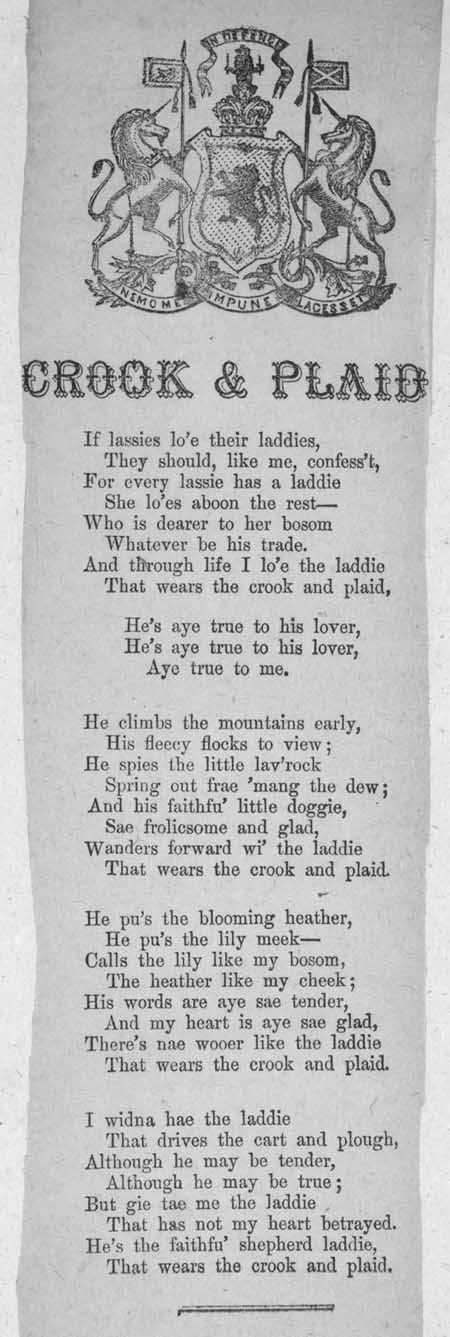Commentary
Verse 1: 'If lassies lo'e their laddies, / They should, like me, confess't, / For every lassie has a laddie / she lo'es aboon the rest- / Who is dearer to her bosom / Whatever be his trade. / And through life I lo'e the laddie / That wears the crook and plaid.' This tender ballad describes a woman's love for her sweetheart, who is a shepherd. The celebration of a pure, healthy country lifestyle was a common feature not only of the ballads, but also of the work of great Scottish poets like Ramsay, Fergusson and Burns. It was a particular concern in the later eighteenth century as industrialisation and urbanisation increasingly affected the Scottish landscape. However, the shepherd as a symbol of gentleness and humility long predates this era and is found most famously in the bible. Early ballads were dramatic or humorous narrative songs derived from folk culture that predated printing. Originally perpetuated by word of mouth, many ballads survive because they were recorded on broadsides. Musical notation was rarely printed, as tunes were usually established favourites. The term 'ballad' eventually applied more broadly to any kind of topical or popular verse.
View Transcription | Download PDF Facsimile
|
 |
Probable period of publication:
1880-1900 shelfmark: L.C.Fol.70(45b)
 View larger image
View larger image
|


